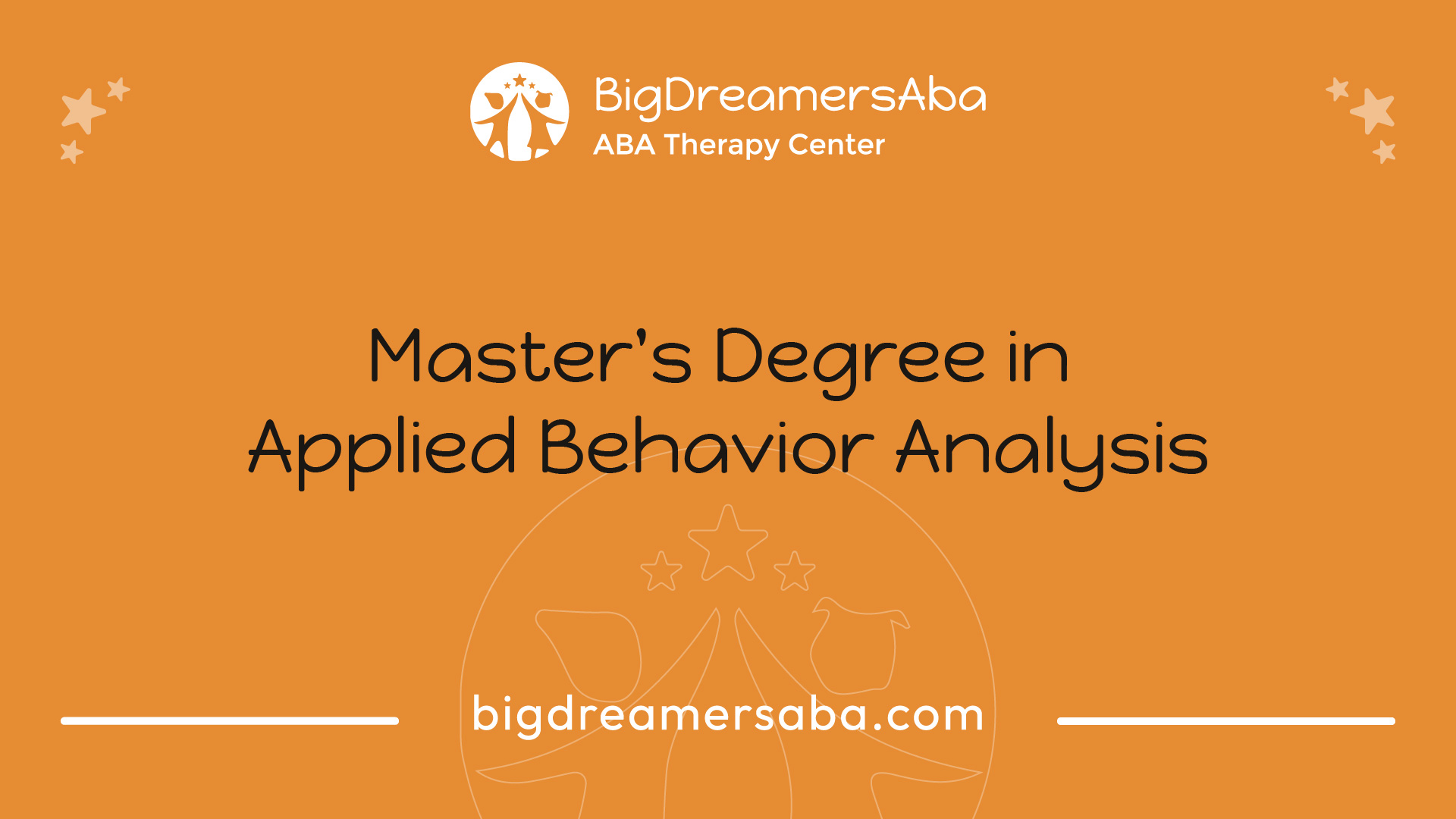How to Successfully Become a Behavioral Therapist for Autism
Embark on the journey to becoming a behavioral therapist for autism with expert guidance and impactful strategies.


The Path to Becoming a Therapist
Importance of Applied Behavior Analysis
Behavioral therapy, also known as applied behavior analysis (ABA), is a widely recognized and evidence-based approach for supporting individuals with autism. ABA therapy focuses on understanding and modifying behaviors to enhance social and communication skills, reduce challenging behaviors, and foster independence [1]. This specialized form of therapy plays a crucial role in improving the quality of life for individuals on the autism spectrum.
Role of a Board-Certified Behavior Analyst

To provide ABA therapy services, individuals often seek the expertise of a board-certified behavior analyst (BCBA). This certification is considered one of the most esteemed credentials in the field of behavioral therapy. To become a BCBA, aspiring professionals must meet specific educational and training requirements, including holding a master's degree, completing specialized coursework, acquiring supervised experience, and successfully passing a comprehensive examination [3].
The role of a BCBA extends beyond delivering ABA therapy sessions. BCBAs are instrumental in developing personalized treatment plans, implementing behavior intervention strategies, analyzing progress data, and collaborating with other professionals to ensure holistic care for individuals with autism. Their expertise in behavioral analysis and intervention techniques enables them to make a significant impact on the lives of those they work with.
Education and Training Requirements
For individuals aspiring to become a behavioral therapist for autism, obtaining the right education and training is essential to excel in this rewarding career. The journey to becoming a behavioral therapist requires a strong educational foundation and specialized training tailored to address the unique needs of individuals with autism.
Bachelor's Degree in Psychology or Related Field
The first step on the path to becoming a behavioral therapist is earning a bachelor's degree in a field such as psychology or a relevant discipline. This undergraduate education provides a solid understanding of human behavior, mental processes, and the foundational principles of behavior analysis. By completing a bachelor's program, aspiring therapists gain essential knowledge that forms the basis for further specialization in applied behavior analysis (ABA).
Master's Degree in Applied Behavior Analysis

To deepen expertise in behavioral therapy for autism, pursuing a master's degree in applied behavior analysis (ABA) is highly recommended. A master's program in ABA focuses on the principles and techniques used in behavior therapy, with a particular emphasis on autism spectrum disorder [1].
Master's level coursework covers topics such as behavior assessment, intervention strategies, data analysis, and ethical considerations in behavioral therapy. Additionally, students receive hands-on training through practicum experiences and supervised fieldwork, allowing them to apply their knowledge in real-world settings.
Completing a master's degree in applied behavior analysis prepares individuals to excel as behavioral therapists and equips them with the necessary skills to develop and implement effective treatment plans for individuals with autism. This advanced training sets the foundation for a successful career in helping individuals with autism reach their full potential through evidence-based therapeutic interventions.
By fulfilling the educational requirements of a bachelor's degree in psychology or a related field and furthering education with a master's degree in applied behavior analysis, aspiring behavioral therapists lay a solid groundwork for making a meaningful impact in the lives of individuals with autism. Moreover, these qualifications align with the standards set by the Behavior Analyst Certification Board for individuals seeking to practice ABA therapy effectively.
Practical Experience and Certification
When aspiring to become a behavioral therapist for autism, acquiring practical experience and obtaining relevant certifications are pivotal steps in the journey. Let's delve into the opportunities for gaining hands-on experience through internships and practicum programs, as well as the importance of achieving the prestigious Board Certified Behavior Analyst (BCBA) certification.
Internships and Practicum Opportunities
Internships and practicum placements play a significant role in honing the skills and knowledge required to excel in the field of behavioral therapy for autism. These experiences provide hands-on exposure to working with individuals on the autism spectrum under the supervision of experienced professionals.
By participating in internships and practicum programs, aspiring therapists have the opportunity to apply theoretical knowledge in real-world settings, observe diverse behavioral challenges, and implement interventions tailored to the unique needs of each individual. These experiences help cultivate essential clinical skills, such as behavior assessment, intervention planning, and progress monitoring.
Internships and practicum opportunities serve as invaluable stepping stones for individuals embarking on a career as a behavioral therapist for autism, offering practical insights and facilitating the development of effective therapeutic approaches.
Board Certified Behavior Analyst (BCBA) Certification
One of the most esteemed certifications in the realm of applied behavior analysis is the Board Certified Behavior Analyst (BCBA) credential. To become a BCBA and provide ABA therapy services for individuals with autism, specific requirements must be met.
Obtaining a master's degree in Applied Behavior Analysis (ABA) is highly recommended to deepen expertise in behavioral therapy for autism [1]. This advanced degree focuses on the principles and techniques utilized in behavior therapy, with a specialized emphasis on addressing autism spectrum disorder.
The BCBA certification necessitates completion of specific coursework, supervised practical experience, and successfully passing a rigorous examination. This certification signifies a high level of competency and expertise in delivering ABA therapy, ensuring that practitioners adhere to best practices and uphold ethical standards.
By attaining BCBA certification, practitioners showcase their dedication to professional excellence and commitment to enhancing the lives of individuals with autism through evidence-based behavioral interventions. This certification serves as a hallmark of proficiency in the field and opens doors to rewarding opportunities in behavioral therapy for autism.
As you navigate the road to becoming a behavioral therapist for autism, gaining practical experience through internships and securing BCBA certification are pivotal milestones that pave the way for a fulfilling and impactful career in applied behavior analysis.
Implementing ABA Therapy
When it comes to behavioral therapists specializing in autism treatment, the implementation of Applied Behavior Analysis (ABA) therapy plays a pivotal role in fostering positive outcomes. Two key aspects of implementing ABA therapy include developing personalized treatment plans and utilizing specific techniques and approaches tailored to each individual's unique needs.
Personalized Treatment Plans
A fundamental principle of ABA therapy is the customization of treatment plans to suit the specific requirements of each individual with autism spectrum disorder (ASD). As noted by Autism Speaks, ABA programs are meticulously tailored to the person's age and ability level, concentrating on diverse skill areas such as communication, social skills, self-care, and play skills. These plans feature detailed instruction plans that break down skills into manageable, concrete steps to facilitate optimal learning and progress.
A qualified and trained behavior analyst, typically a Board-Certified Behavior Analyst (BCBA), designs and oversees the ABA program tailored to meet the needs of the individual learner. This customization extends to various aspects, including the individual's skills, interests, preferences, and family dynamics. This personalized approach ensures that the therapy program is comprehensive and impactful, addressing the individual's specific challenges and goals [3].
Techniques and Approaches in ABA Therapy
In the realm of ABA therapy, a range of techniques and approaches are employed to support individuals with autism in developing essential skills and behaviors. Behavioral therapy based on applied behavior analysis has been proven to yield significant improvements in language development, social skills, adaptive behavior, and reduction of problematic behaviors in individuals with ASD [2].
These techniques encompass a variety of strategies, including positive reinforcement, prompting, shaping, chaining, and modeling, among others. Through the consistent application of these evidence-based interventions, behavioral therapists help individuals with autism acquire new skills, enhance communication abilities, improve social interactions, and address challenging behaviors effectively.
By implementing a combination of personalized treatment plans and employing diverse techniques grounded in applied behavior analysis, behavioral therapists can make significant strides in supporting individuals with autism spectrum disorder on their unique journey towards growth and development.
The Effectiveness of ABA Therapy
Applied Behavior Analysis (ABA) therapy has been widely recognized as the gold standard in autism treatment, demonstrating effectiveness in addressing various skill areas for individuals across different age groups, from early childhood through adulthood. ABA therapy focuses on utilizing positive reinforcement to encourage the demonstration of useful skills and socially appropriate behaviors, while discouraging harmful or counterproductive behaviors [3].
Enhancing Social and Communication Skills
One of the key strengths of ABA therapy lies in its ability to enhance social and communication skills in individuals with autism spectrum disorder (ASD). By breaking down complex social interactions into smaller, more manageable steps, ABA programs help individuals develop essential communication skills, such as language comprehension, verbal expression, and non-verbal communication cues. Through targeted interventions and personalized instruction plans, individuals learn to engage more effectively with others, fostering meaningful connections and relationships.
ABA therapy also focuses on teaching individuals with ASD how to recognize social cues, understand emotions, and navigate social situations with confidence. By providing structured opportunities for social interaction and practice, ABA therapy helps individuals build crucial social skills that are essential for forming friendships, developing peer relationships, and participating actively in social settings.
Reducing Challenging Behaviors
In addition to enhancing social and communication skills, ABA therapy is highly effective in reducing challenging behaviors commonly associated with autism spectrum disorder. Through the use of data-driven approaches and behavior modification techniques, ABA therapists work to identify the underlying triggers of challenging behaviors and implement strategies to address them effectively. By reinforcing positive behaviors and providing alternative, more adaptive responses, individuals learn to recognize and manage their emotions, leading to a decrease in problem behaviors over time.
ABA programs are tailored to each individual's unique needs and abilities, focusing on addressing specific challenging behaviors and developing alternative, more positive behaviors to replace them. By providing consistent and structured interventions, ABA therapy helps individuals with ASD learn coping strategies, self-regulation techniques, and problem-solving skills to manage challenging situations more effectively. This tailored approach not only reduces problem behaviors but also empowers individuals to navigate daily life with greater independence and confidence.
By emphasizing the enhancement of social and communication skills and the reduction of challenging behaviors, ABA therapy showcases its effectiveness in promoting positive outcomes for individuals with autism spectrum disorder. Through individualized interventions and evidence-based practices, ABA therapy plays a vital role in supporting the holistic development and well-being of individuals with ASD, empowering them to achieve their full potential and thrive in diverse environments.
Behavioral Therapist Skills and Roles
As pivotal members of the treatment team for individuals with autism, behavioral therapists play critical roles in facilitating progress and achieving therapeutic goals. Two key aspects of their responsibilities include collaborating in treatment plans and supporting independence and skill development.
Collaborating in Treatment Plans
Collaboration is a fundamental aspect of a behavioral therapist's role, ensuring the delivery of comprehensive and individualized care to individuals with autism. By working alongside other professionals, such as speech therapists, occupational therapists, and educators, behavioral therapists contribute their expertise in behavior analysis to create holistic treatment plans that address various skill areas. Communication and coordination with team members are essential to ensure consistency and coherence in interventions.
Supporting Independence and Skill Development
A primary focus of behavioral therapists is to empower individuals with autism to enhance their independence and develop essential skills for daily living. Through the implementation of evidence-based interventions, behavioral therapists guide individuals in acquiring and improving communication, social, self-care, and play skills [3]. They meticulously design detailed instruction plans that break down skills into manageable steps, facilitating the learning process and tracking progress effectively.
As individuals progress through ABA programs, behavioral therapists play a crucial role in fostering the development of critical skills while simultaneously addressing challenging behaviors. Their dedication to tailoring interventions to each individual's unique needs and abilities forms the foundation for significant advancements in communication, social interactions, and adaptive behaviors.
For aspiring behavioral therapists, understanding the importance of collaboration in treatment planning and the impact of supporting independence and skill development is essential in preparing to make a positive difference in the lives of individuals with autism. By embodying these core skills and roles, behavioral therapists contribute significantly to the success of ABA therapy in promoting growth, independence, and improved quality of life for individuals with autism.
References
[2]:
[3]:
Recent articles

The Role of Reinforcers in ABA Therapy Programs

How to Maintain ABA Therapy Progress During School Breaks
